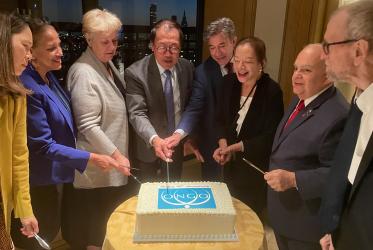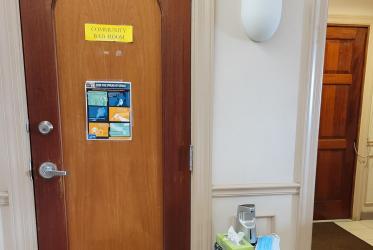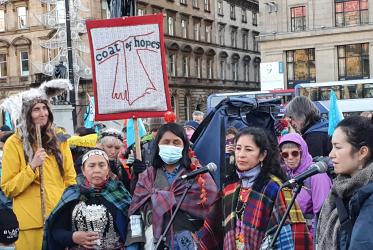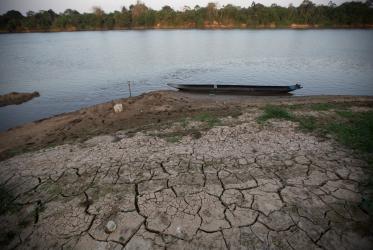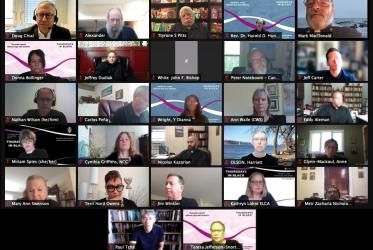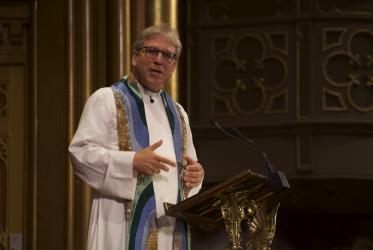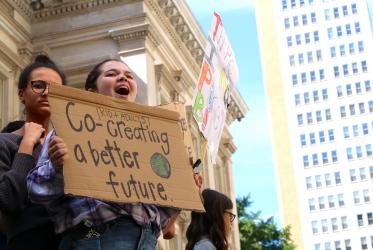Displaying 1 - 20 of 73
“Bathroom ministry” for the homeless
14 December 2021
Brazilian ecumenical water network launched
29 July 2021
Youth amplify #NoDAPL movement in Standing Rock
22 April 2021
“Do you love me?” It’s a question about global warming
22 September 2019
WCC joins global climate strike with throngs of young people
21 September 2019
WCC remembers lost colleagues
24 May 2019
Interfaith Rainforest Initiative expands
12 February 2019
Voices from Colombia: “What if we have no land to till?”
15 February 2018
